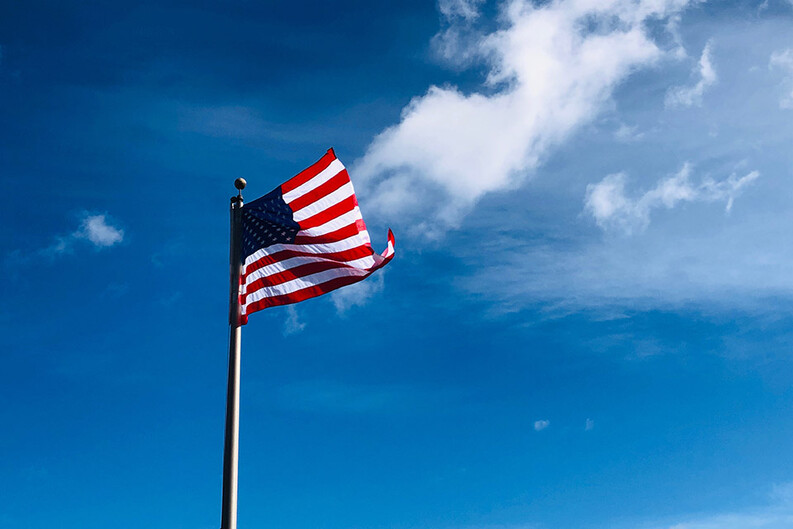Veterans Clinic Secures Major Settlement in Army Class Action

United States Army veterans impacted by post-traumatic stress disorder (PTSD), traumatic brain injury (TBI), military sexual trauma (MST), or other behavioral health conditions have announced a settlement agreement, subject to court approval, in a nationwide class action against the Army. This settlement, which occurred on November 18, 2020, will ensure that the Army reconsiders thousands of decisions involving Iraq and Afghanistan-era veterans with a less-than-fully-honorable discharge. Additionally, the Army will adopt procedural reforms, such as a universal telephonic hearing program, that will facilitate access to discharge upgrades for this and future generations.
The Yale Law School Veterans Legal Services Clinic and co-counsel at Jenner & Block represent the plaintiffs in the case Kennedy v. McCarthy. The settlement holds the Army accountable to Iraq and Afghanistan veterans with less-than-honorable discharges and is part of a series of cases that advocate for the rights of veterans who are being denied benefits.
“This is a watershed vindication of veterans’ rights,” said plaintiff Steve Kennedy, who served in Iraq and is a founder of the Connecticut chapter of the Iraq and Afghanistan Veterans of America. “Not only will this have a practical impact on the lives of thousands of veterans, but this settlement will also signal that the federal government must be held accountable to its word to veterans.”
Since the September 11 attacks, the Army has administratively discharged more than 150,000 soldiers with a less-than-fully-honorable discharge status, often based on minor misconduct attributable to undiagnosed PTSD or other conditions. Along with Kennedy, Army veteran Alicia Carson filed suit in April 2017 to challenge the systemic failure of the Army Discharge Review Board (ADRB) to account for mental health conditions when reviewing a veteran’s application for a discharge modification. Despite laws and guidance from the Department of Defense (DOD) requiring “liberal consideration” be afforded to applications that present evidence of PTSD or related conditions, the ADRB routinely denied thousands of veterans with less-than-honorable discharges (known as “bad paper”) the proper review that these directives require.
U.S. Senator Richard Blumenthal ’73 stated, “I am elated by this historic victory — resulting from a relentless fight for justice. After three years of tireless effort from a great team led by the Yale Law School Veterans Legal Services Clinic and thousands of Army veterans, we can celebrate this significant step forward. Heroic veterans suffering from the invisible wounds of war deserve support and treatment — not the stain and stigma of a less-than-honorable discharge. I’m proud to see that this injustice has been righted for an entire generation of Army servicemen and women. I will continue to advocate for fair treatment of all who sacrificed for our country.”
The agreement also ensures that veterans who submit applications for discharge upgrades in the future will benefit from procedural reforms. These changes include that the ADRB will inform veterans of their potential right to medical evaluation and possible resources for free legal counsel to aid them in completing their applications. The ADRB will also be required to ensure each applicant has access to a telephonic hearing from their residence or other location. They will also be required to document any future negative decisions and will better train its staff on DOD guidance.
“This settlement both compels the ADRB to adhere to the law, and provides veterans with the information they need to effectively navigate that process,” said Garry Monk, Executive Director of the National Veterans Council for Legal Redress.
Kris Goldsmith, Founder and President of High Ground Veterans Advocacy, said that “these veterans sustained immense physical and mental wounds in service to this nation. The least the government can do is fulfill the promises it has made them.”
The settlement agreement provides for individual reconsideration of discharge upgrade applications.
“Thousands of veterans who were denied full relief from 2011 to 2020 will receive automatic do-overs of their applications, but with the benefit of new, more generous standards and procedures, and those denied full relief from 2001 to 2011 will be eligible to reapply and receive liberal consideration of their application,” said Josh Britt ’22, a law student intern in the Veterans Legal Services Clinic. “For many veterans, this could mean the difference between struggling with PTSD symptoms without adequate healthcare and finally receiving the benefits guaranteed by law.”
The parties have asked Judge Charles S. Haight in the United States District Court for the District of Connecticut to conduct a hearing to determine whether to approve the agreement between the parties. Veterans identified as part of the class will receive notice and will have an opportunity to attend and participate in this hearing. If the settlement is approved by the court, class members will receive notice describing their rights under the agreement.
Established in 2010, the Veterans Legal Services Clinic is part of the Jerome N. Frank Legal Services Organization at Yale Law School. Students and faculty represent Connecticut veterans in litigation before administrative agencies and courts, on benefits, discharge upgrade, and other civil rights matters. In addition, students represent local and national organizations in state and federal policy advocacy relating to the legal needs of veterans. The student team includes law students Rebecca Brooks ’22, Joshua Britt ’22, Andrew DeGuglielmo ’21, and Deepen Gagneja ’22. To learn more, visit https://law.yale.edu/kennedy-settlement


